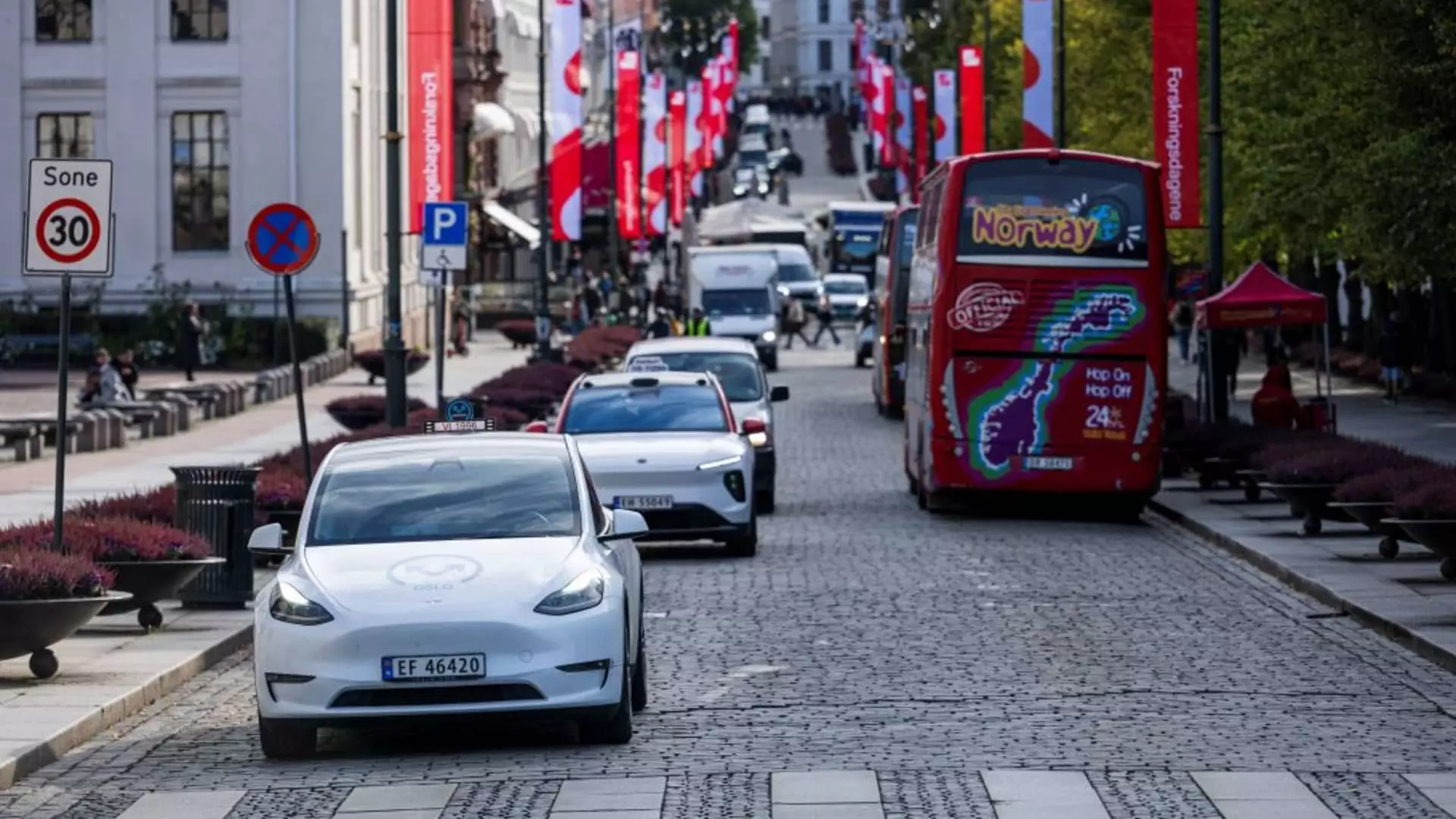Tesla’s stock market performance took a significant hit recently, declining around 5% in response to President Donald Trump’s announcement regarding new tariffs on goods imported from key trade partners, including Canada, Mexico, and China. This announcement came at a particularly inopportune moment for Tesla, which already draws many of its components from these regions. With approximately 50% of Tesla’s vehicles being manufactured in China, the implications of a 10% tariff could be considerable. Such tariffs not only threaten Tesla’s profitability but also reflect the volatile landscape for electric vehicle manufacturers amidst rising geopolitical tensions.
Tesla differs from other automakers by having strategically positioned factories in the United States, Berlin, and Shanghai. This geographical diversity could provide some insulation against the adverse effects of tariffs, allowing Tesla to adjust production and sourcing in response to the altered economic conditions. Nevertheless, the CFO of Tesla, Vaibhav Taneja, candidly acknowledged the potential financial strain during a recent earnings call. He highlighted how their extensive reliance on global sourcing for parts remains a double-edged sword, underscoring that despite efforts to localize supply chains, the company’s operations inevitably remain intertwined with international markets.
In addition to the tariff-related concerns, Tesla is grappling with a notable reduction in vehicle registrations across Europe, particularly in countries such as France, Sweden, and Norway. Data from the automotive industry association PFA indicates that registrations in France plummeted by 63% in January year-over-year, a startling statistic given that France is one of Europe’s largest markets for electric vehicles. This steep decline undermines Tesla’s previous growth momentum and raises questions about its competitive position in an increasingly crowded EV marketplace.
Other European markets also echoed this decline, with sales in Sweden and Norway decreasing by 44% and 38% respectively. Such drops not only signal potential long-term challenges for Tesla in capturing market share but also suggest wider consumer sentiment issues that may affect the brand’s image and desirability. As demand dwindles in some of its strongest markets, the crises compound and collect momentum, further pressuring the company to rethink its sales strategies and marketing approaches.
In an effort to stimulate demand amid these challenges, Tesla has implemented price reductions on leasing options for its base Model 3 sedan and the unpainted steel version of the Cybertruck. These moves are strategic, aiming to make their vehicles more accessible and appealing to a broader range of customers. However, they also indicate a more troubling underlying reality: diminishing consumer demand coupled with overproduction.
Adding to the skepticism about Tesla’s market position, an independent researcher who forecasts Tesla sales asserted that he expects only about 21,000 units of the Cybertruck to be sold in 2025. This follows concerns about an unsold backlog of Cybertrucks that reportedly reached 10,600 units by the end of 2024. The researcher indicated that the order backlog had completely evaporated, underscoring a profound disconnect between production and consumer interest.
The intertwining factors of tariffs, declining registrations, and adverse market sentiment have not only created immediate challenges for Tesla’s operations but also significantly impacted its brand perception. Following a tumultuous political climate and notable affiliations of CEO Elon Musk with right-wing political entities, Tesla’s brand value reportedly fell by 26% as calculated by Brand Finance in 2024. This decline epitomizes how external factors and leadership decisions can influence corporate identity and consumer trust.
While Tesla remains a prominent player within the electric vehicle sector, emerging challenges related to tariffs and declining registrations signal a critical juncture for the company. The landscape is changing rapidly, and Tesla will need not only to adapt its operational strategies but also to maintain and enhance its brand loyalty in order to navigate these turbulent times effectively.

